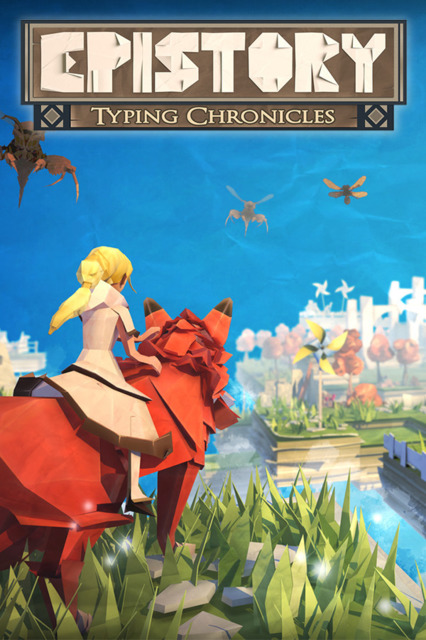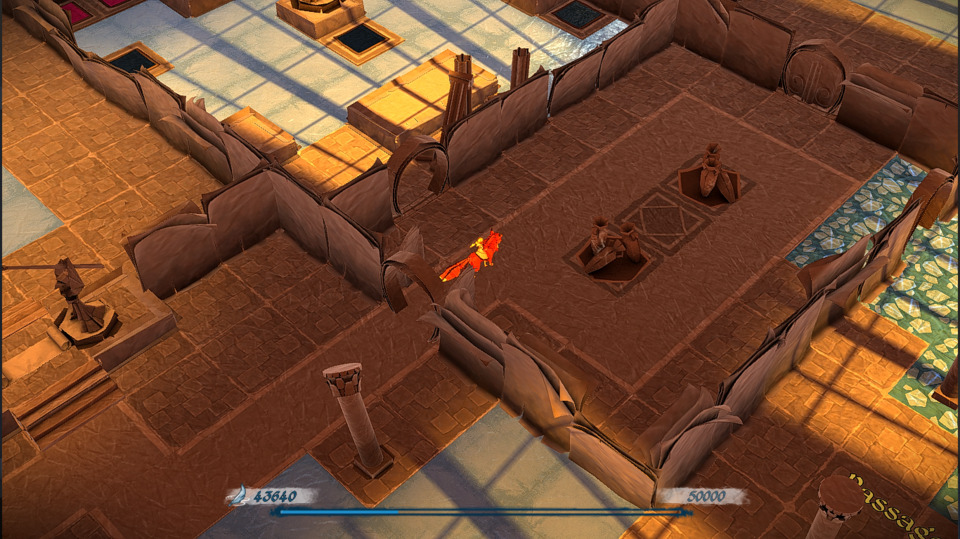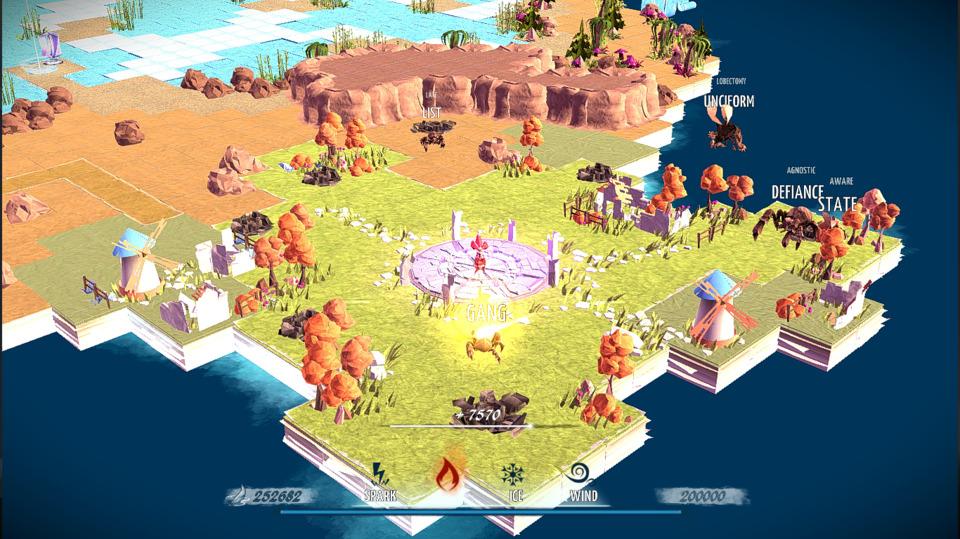Indie Game of the Week 287: Epistory: Typing Chronicles
By Mento 1 Comments

The PC platform has had many advantages over its console brethren in times past, but none more so than providing the choice between standard controllers or a keyboard and mouse combination. Beyond that one expensive peripheral for Dreamcast or that expensive and ridiculous one for GameCube there's no real keyboard equivalent on consoles, which puts them behind the pack when it comes to the few genres that benefit greatly from a large set of keys over a smaller set of buttons. FPS games offer greater precision with a mouse, RPGs and simulation games benefit from an abundance of key bindings, and then you have perhaps one of the rarest genres of all - and one which wouldn't work at all without a keyboard - that is the typing game.
The dry Mavis Beacon-led instructional typing programmes of the early computing world were a way to help novice administrative professionals that would be tied to a keyboard for most of their careers, but video games soon found a way to combine their own mechanics with typing words really fast. I'm not sure if Sega's Typing of the Dead, a knowingly silly spin on their House of the Dead arcade light-gun shooter series, was necessarily the first but it's certainly the most notable from these early forays into typing-based gameplay. Epistory: Typing Chronicles is one of the precious few others to follow the same path, albeit with a little more sincerity. Its story presents a nameless girl riding a giant fox, travelling around a formless world made of papercraft that slowly assembles itself as the player accomplishes goals and, quite frequently, fights off bugs by typing in the words floating over their heads. Rather than an on-rails shooter like Typing of the Dead, however, Epistory is styled more like a Zelda game: you have an expansive overworld to explore with barriers that you need the right abilities to overcome, and sequential dungeons in which those abilities can be found. There's a game-wide score that doubles as an experience point bar: hitting milestones allows you to purchase new passive upgrades, like strengthening the elemental abilities you've found, making traversal faster by improving the fox's walking speed, or making combos easier to obtain by extending the time it takes for them to expire. These milestone targets also apply to special nodes scattered across the overworld, which will open up the way to new dungeons and occasionally optional fight arenas or treasure chests.

The typical progression loop for the game has you exploring the overworld until you find the next dungeon, finding out much of that dungeon has been gated until you follow the linear path to the next ability unlock, and then completing the dungeon once it's been thoroughly explored to the player's satisfaction by fighting in one of the game's "nests": arena-like battles where enemies march towards you from all directions and you play tactical triage in picking off the enemies that present the greatest threat at that moment. Slow, trundling enemies with $20 vocabulary words can be ignored for a little while as you pick off the fast-moving mosquitoes with three-letter names, but you don't want to be spelling out half a scientific journal when those large guys finally get close. The abilities - styled after the four elements of fire, ice, wind, and lightning - are also helpful in specific contexts: fire, for instance, will break the enemy's current word and also burn through their next if they're the type to have several, while ice will stop an enemy dead in its tracks for a few seconds to give you some breathing room, either to finish them off or to focus on other foes closing the distance. However, one complication is that to switch elements mid-fight you have to type its name: "Fire", "Ice", "Spark", and "Wind" aren't long words but having to type them in conjunction with others can make switching frequently more trouble than it's worth. (Of course, once you start encountering enemies that are only weak to a specific element, it's a necessity to keep swapping around.) With eight dungeons - only the odd-numbered ones have abilities to learn, the others exist to increase your score for overworld targets - the game's a lean five or six hours or so, which is about perfect for the difficulty curve it offers. Those still looking for a challenge once the story is over can always try the Arena mode, which pits you against endless nest battles to test your skills.
Right off the bat, the strengths and weaknesses of this novel format become apparent. Since the world has this very detailed 3D papercraft look (a comparison point would be something like the 3D platformer Tearaway, or the survival game Shelter), it's very attractive but also quite demanding on weaker systems. The lag introduced by these graphics and visual effects then leads to things like input delay and missed inputs, which as you might assume in a typing game is very no bueno. Aspects like how various objects like pots and rocks and weeds can be destroyed for some extra points is a cute idea that teaches the player to regularly tap the button that brings up the typing prompt - used to fight random enemies wandering around also - to destroy anything that looks suspicious, but the game's insistence on attaching thematically germane words to these objects does cause the game to have some ridiculous vocabulary quirks. Did you know there's at least fifty different words to describe a rock? The game will give you a crash course in esoteric geological jargon, whether you were looking for one or not.

Yet for all its faults, and more than a few bugs (the enemies are insects too, incidentally, but I'm mostly referring to how words will sometimes vanish from above their heads, making them impossible to defeat), I can't really rag on a game like Epistory too much. Partly because it's such a cool idea presented in a format that is far more palatable to my gaming tastes than a twitch arcade shooter, partly because it tells an emotional story with a twist coming a mile off that's still resonant in spite of its familiarity, and partly because I'm glad games this distinctive continue to pour out from the Indie space unprompted. Last year, Epistory's developers Fishing Cactus launched the game's spiritual successor Nanotale, which offers a similar combination of typing combat and action-adventure gameplay hooks, and are working on their next, Outshine, so I'm glad they've managed to carve out this niche for themselves. I might make sure I have a better rig by the time I try them out though: I'd rather place the blame entirely on my stubby, indextrous fingers for not spelling out "epididymis" in time rather than on this potato PC struggling to keep up.
Rating: 4 out of 5.
| < Back to 286: The Pedestrian | The First 100 | The Second 100 | > Forward to 288: Grapple Force Rena |
